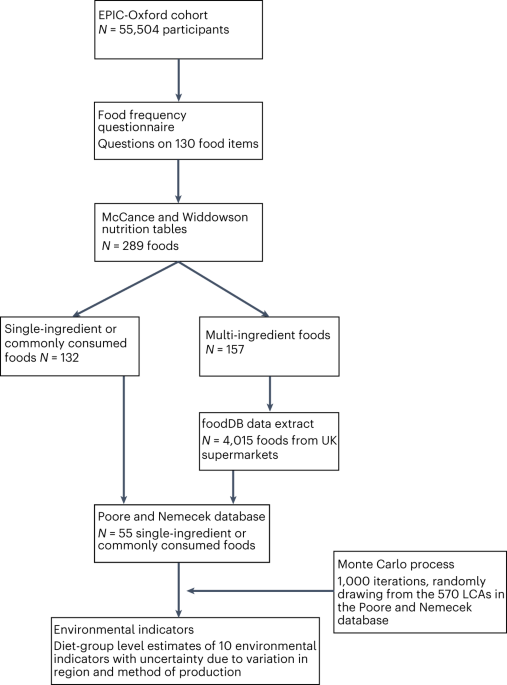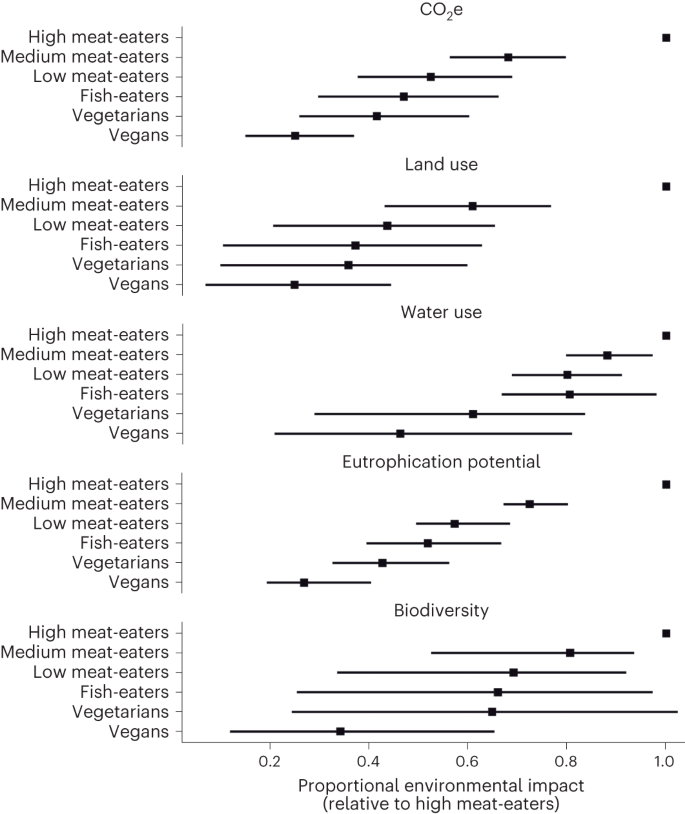- cross-posted to:
- hackernews@derp.foo
- green@lemmy.ml
- collapse@sopuli.xyz
cross-posted from: https://lemmy.world/post/5586412
Fig. 2: Relative environmental footprint from GHG emissions of diet groups in comparison to high meat-eaters (>100 g d−1).
Fig. 3: Relative environmental footprint from GWP100, land use, water use, eutrophication potential and biodiversity impact of diet groups in comparison to high meat-eaters (>100 g d−1).





Not to sound rude, but this feels like a waste of time for me. Emissions created by meat consumption are only a small percentage of the emissions released from a person that are unrelated to eating such as driving, for example. And if the lockdowns during the pandemic showed something, it was that there was no significant change in emissions worldwide, the reason being that a vast, vast majority of carbon or other greenhouse gas emissions come from large and often multinational corporations, so stop bothering with a minor part within a minor part of where global emissions come from and focus on the big picture! I think getting rid of 20% of global emissions is worth a lot more than getting rid of 0.02%, don’t you think?
Indeed - see my other post below. The idea of an individual’s carbon footprint was just dreamt up by Big Oil to pass the blame to us. Large producers of carbon sorting their mess out would solve this overnight. Apparently, just switch replacing China’s reliance on coal with gas would put us back on track for a rise of 1.5C (or close to it, we may already be too late for that exact target). Any changes we, as individuals make, is a drop in the bucket compared to that. We should have had widespread carbon capture decades ago which would have bought us time to decarbonise our energy supplies but we can’t even manage that today.
The upside is that it helps us feel like we have some control (illusory as that may be) and giving up red meat could be a good idea on health and welfare grounds.